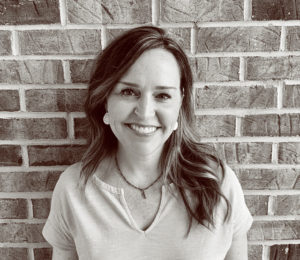Do you remember a TV show called “The Love Connection”? It was a matchmaking show in which contestants would go on dates to determine whether they were compatible. When you’re dating, it’s not hard to find a connection with someone. Maybe you both love Mexican food, funny movies, or even moonlight walks. Your shared interests are part of your mutual attraction.
Connections in dating may be easy but building strong connections in marriage takes more willingness and work. At weddings, couples promise to love each other forever, but we all know those promises are easy to make and difficult to keep. The better able you are to build and nurture strong connections, the more likely your marriage will succeed for the long term.
There are three keys to developing true, effective connection in marriage. The first of these is communication. We typically think we do a great job of communicating with one another, yet nearly every couple I’ve counseled fell short of that. Sure, they could talk together frequently, but when it came to what was really important, they struggled. For example, many people find it difficult to express their emotions and emotional needs in ways their spouse can understand. Another common issue is the failure to listen actively when our spouses are trying to communicate. We may nod or act like we’re paying attention, but it’s all too easy to miss out on nuances and messages.
The second follows along the same lines. It’s conflict resolution. No matter how well a couple gets along, any relationship between two people eventually involves conflict. It can be as simple as disagreeing about where to go for dinner or as complex as dealing with a difficult parenting issue. Most couples learn how to resolve conflicts by watching their own parents, and that’s rarely a good model to follow. Learning more effective ways to resolve conflicts not only strengthens a marriage, but it also heads off arguments or those moments of silent resentment that interfere with our happiness.
The third key is forgiveness—and that includes both learning how to seek it and how to grant it. None of us is perfect. We all make mistakes, and sometimes those mistakes can damage our relationship with our spouse. Whether it’s an unintended slight or something significant and devastating, it can chip away at that connection we need if we don’t fix it. Forgiveness isn’t a matter of saying “I’m sorry” and hoping your spouse will forget about it. Genuinely asking for forgiveness involves acknowledging what you did was wrong, recognizing the impact it had on your spouse, promising it won’t be repeated, making change, and taking steps to repair the damage. Granting forgiveness can even be harder, but it’s critical.
Do you worry that the connections in your marriage are not as strong as they should be? Would you like some simple steps you can take to strengthen all three keys? Counseling isn’t just for marriages that are in trouble. It’s also for learning how to keep your marriage out of trouble. Why not set a time to talk with one of our professional counselors about what you’re feeling, so you can start working on connecting better?

Sarah Barksdale is one of Care to Change’s therapists. A pastor’s wife and therapist, she has worked with teens, young married couples, parents, and those struggling with addictions.